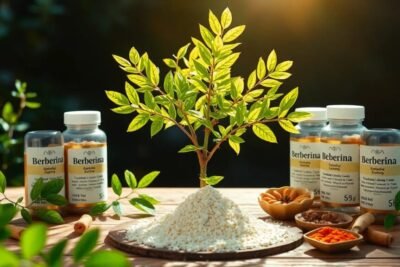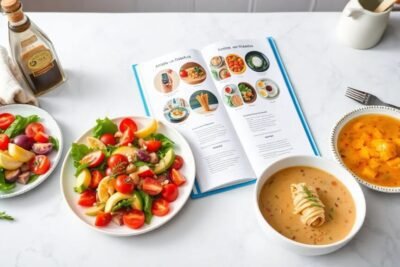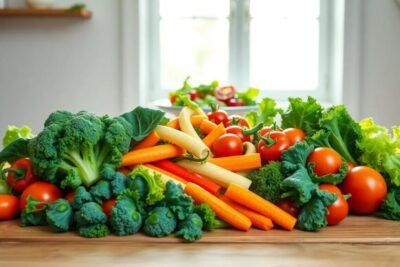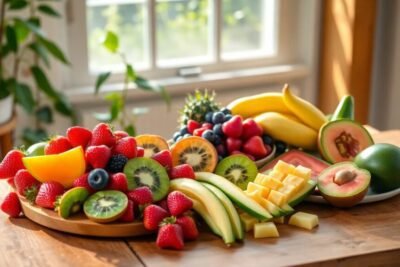
10 Effective Ways to Lower Blood Pressure Quickly Without Medication
- Understanding Blood Pressure
- The Importance of Natural Remedies
- Hydration: The Key to Lowering Blood Pressure
- The Power of Diet: Foods That Help Lower Blood Pressure
- Exercise: A Natural Blood Pressure Reducer
- Breathing Techniques and Relaxation
- Cutting Down on Caffeine and Alcohol
- The Impact of Stress Management on Blood Pressure
- Monitoring Blood Pressure: Why It's Important
Understanding Blood Pressure
Blood pressure refers to the force exerted by circulating blood against the walls of blood vessels. It is measured in millimeters of mercury (mmHg) and is recorded with two numbers: systolic pressure, which occurs when the heart beats, and diastolic pressure, which occurs when the heart rests between beats. Normal blood pressure is generally considered to be around 120/80 mmHg. Understanding the categories of blood pressure is crucial for maintaining cardiovascular health.
Blood pressure can be categorized into several stages: normal, elevated, stage 1 hypertension, and stage 2 hypertension. Normal blood pressure indicates optimal vascular health, whereas elevated and hypertensive ranges denote increasing risk for severe complications. Prolonged periods of high blood pressure can lead to serious health issues, including heart disease, stroke, and kidney problems. These risks underscore the importance of understanding how to lower blood pressure quickly without meds, especially in urgent scenarios.
Lifestyle factors play a significant role in influencing blood pressure levels. Diet, exercise, stress management, and sleep quality can all contribute to blood pressure fluctuations. Consuming a diet high in sodium while low in potassium may elevate blood pressure, while the inclusion of fruits, vegetables, lean proteins, and whole grains can help maintain healthy levels. Regular physical activity strengthens the heart and improves circulation, reducing strain on the arteries. Other factors, such as excessive alcohol intake, smoking, and chronic stress, have been linked to increased blood pressure as well. Therefore, adopting healthful lifestyle changes is fundamental for effectively managing blood pressure.
By grasping the importance of maintaining blood pressure within a healthy range, individuals can take actionable steps toward reducing their risks. Understanding these foundational aspects is essential for those seeking effective methods on how to lower blood pressure quickly without medication.
The Importance of Natural Remedies
The management of high blood pressure has garnered significant attention in recent years, particularly regarding the effectiveness of natural remedies and lifestyle modifications. Many individuals are increasingly seeking alternative methods for healthcare that do not involve pharmaceuticals, leading to a growing interest in how to lower blood pressure quickly without meds. These natural approaches not only aim for immediate results but also promise long-term health benefits.
One of the primary advantages of utilizing natural remedies is their holistic nature. Unlike medications that often come with side effects, natural solutions tend to support overall wellness. Lifestyle changes such as adopting a balanced diet rich in fruits, vegetables, and whole grains can result in immediate improvements in blood pressure levels. Incorporating regular exercise, practicing stress management techniques like yoga or meditation, and ensuring adequate hydration are also crucial elements that contribute to not just lower blood pressure but improved overall health.
Furthermore, the emotional connection to these remedies cannot be overlooked. When individuals engage in natural practices to manage their hypertension, they often feel empowered and more in control of their health. This sense of agency can lead to positive reinforcement and motivate individuals to maintain these healthy habits. For many, the transition towards a lifestyle focused on natural remedies signifies an investment in their wellbeing that extends beyond blood pressure management, fostering greater resilience and vitality.
In exploring these avenues, one will discover that simple lifestyle changes can yield significant benefits, addressing both the immediate need to lower blood pressure and promoting lasting cardiovascular health. This approach not only enhances the quality of life but also sets the foundation for a healthier future. By prioritizing natural remedies, individuals take a proactive step in their health journey, realizing that there are indeed effective pathways to achieving their wellness goals without pharmaceuticals.
Hydration: The Key to Lowering Blood Pressure
Proper hydration is a crucial yet often overlooked aspect of managing blood pressure levels effectively. Maintaining optimal hydration can significantly influence blood viscosity, thereby affecting how efficiently the heart pumps blood throughout the body. Dehydration can lead to thicker blood, which increases the strain on the heart and can cause elevated blood pressure. Therefore, understanding how to lower blood pressure quickly without meds through hydration practices is essential for individuals looking to improve their cardiovascular health.
The general recommendation for daily water intake is about 2 to 3 liters, although individual needs can vary based on factors like body size, activity level, and environmental conditions. A simple way to gauge hydration is by monitoring the color of urine; a pale yellow indicates adequate hydration, while a darker shade often signals a need for increased fluid intake. To incorporate proper hydration into daily routines, consider carrying a reusable water bottle throughout the day, setting reminders to drink water, or integrating hydrating foods into meals, such as fruits and vegetables like cucumbers, oranges, and watermelons.
In addition to water, herbal teas and other non-caffeinated beverages can contribute to overall fluid intake without carrying the health risks associated with sugary or caffeinated drinks. It is particularly beneficial to consume fluids during and after exercise, as physical activity increases water requirements. Moreover, individuals who engage in salt-heavy diets must counterbalance with increased hydration, as salt can lead to water retention and elevated blood pressure. Adopting these hydration strategies not only offers immediate improvements in how to lower blood pressure quickly without meds but also fosters long-term cardiovascular wellness.
The Power of Diet: Foods That Help Lower Blood Pressure
The connection between diet and blood pressure is well-documented, and making thoughtful food choices can significantly impact overall health. A notable approach to consider is the DASH diet (Dietary Approaches to Stop Hypertension), which focuses on whole foods that naturally lower blood pressure. This eating plan emphasizes fruits, vegetables, whole grains, and lean proteins, all of which are known to contribute positively to cardiovascular health.
Incorporating potassium-rich foods like bananas, spinach, and sweet potatoes can play a crucial role in managing blood pressure levels. Potassium helps balance sodium levels in the body, reducing the tension in blood vessel walls. Pairing these foods with low-sodium options is vital in a diet aimed at lowering blood pressure quickly without medications. Reducing sodium intake can lead to significant cardiovascular benefits and is a fundamental principle of the DASH diet.
Moreover, foods that are rich in antioxidants, such as berries, nuts, and dark chocolate, can further assist in maintaining healthy blood pressure levels. Antioxidants help combat oxidative stress in the body, promoting better overall vascular health. Additionally, omega-3 fatty acids found in fatty fish like salmon and flaxseeds have been shown to reduce blood pressure by lowering inflammation and improving blood flow.
To inspire dietary changes, consider creating meals that encompass these healthy food recommendations. A simple yet nutritious breakfast could include oatmeal topped with fresh berries and a side of banana. For lunch, a spinach and avocado salad with grilled chicken can provide necessary nutrients while keeping sodium levels low. In the evening, a delicious salmon dish accompanied by roasted sweet potatoes and steamed broccoli can be both satisfying and heart-healthy.
Adopting these dietary changes is an effective strategy for individuals seeking to lower blood pressure quickly without depending on medications. By focusing on wholesome, nutrient-rich foods, one can work towards achieving better health and well-being naturally.
Exercise: A Natural Blood Pressure Reducer
Engaging in regular physical activity is one of the most effective strategies for learning how to lower blood pressure quickly without meds. Exercise not only helps to strengthen the heart but also enhances blood circulation, which can significantly reduce hypertension levels over time. Aerobic exercises, such as brisk walking, running, cycling, and swimming, are particularly beneficial. These activities can elevate your heart rate and improve heart health, ultimately contributing to lower blood pressure.
Incorporating strength training into your routine is equally valuable. Resistance exercises, including weight lifting or bodyweight workouts, can lead to reductions in resting blood pressure. Aim to engage in strength training at least two days per week in combination with aerobic activities to maximize the benefits for your cardiovascular health.
Creating a sustainable exercise plan that fits into a busy lifestyle is crucial for long-term success. Start by setting achievable goals and gradually increasing the intensity and duration of your workouts. Even moderate physical activities, such as gardening or household chores, can yield positive effects on blood pressure. Consider using fitness apps or joining local classes to find motivation and keep accountability. These resources can help maintain a routine that is both enjoyable and effective.
In addition to conventional exercise, stress-relief techniques such as yoga and tai chi are effective methods for learning how to lower blood pressure quickly without medication. These practices promote relaxation and mindfulness, which have been shown to lower stress hormone levels and consequently reduce blood pressure. Incorporating a mix of physical activity, strength training, and stress-relief practices can vastly improve one's overall well-being and contribute to sustainable blood pressure management.
Breathing Techniques and Relaxation
Breathing techniques and relaxation exercises are powerful tools for managing stress, which can lead to immediate reductions in blood pressure. When the body is under stress, it enters a 'fight or flight' mode, causing blood vessels to constrict and heart rate to rise. By implementing practices such as deep breathing, meditation, and progressive muscle relaxation, individuals can effectively calm their mind and body, which contributes to lowering blood pressure quickly without meds.
One effective method is deep breathing. To practice this technique, sit comfortably and take a deep breath in through your nose, allowing your abdomen to expand. Hold this breath for a count of four and then exhale slowly through your mouth. Repeat this process for several minutes, focusing solely on your breath. Doing this for even a few minutes can significantly enhance your sense of relaxation.
Meditation is another beneficial practice that promotes mindfulness and emotional well-being. To get started, find a quiet space where you can sit or lie down comfortably. Close your eyes and focus on your breathing. If your mind wanders, gently guide your thoughts back to your breath. Engaging in just 10-15 minutes of meditation daily can help manage stress and lower blood pressure over time.
Progressive muscle relaxation is also effective. This technique involves tensing and then relaxing each muscle group in your body, starting from your toes and working your way up. As you consciously relax each muscle, you will notice a tangible sense of relief and calm, which can assist in reducing blood pressure. Incorporating these relaxation methods into your daily routine not only fosters a healthier lifestyle but also emphasizes the connection between emotional health and physical well-being.
Cutting Down on Caffeine and Alcohol
Excessive consumption of both caffeine and alcohol has been linked to elevated blood pressure levels. Caffeine, a stimulant found in coffee, tea, and certain soft drinks, can temporarily raise blood pressure by constricting blood vessels and increasing heart rate. Studies suggest that individuals who consume high doses of caffeine regularly may experience a more persistent increase in blood pressure. As such, learning how to lower blood pressure quickly without meds may involve re-evaluating caffeine intake.
Experts recommend limiting caffeine intake to no more than 300 mg per day, which is roughly equivalent to three 8-ounce cups of brewed coffee. If you are particularly sensitive to caffeine or existing high blood pressure, further reducing caffeine consumption may be advisable. Consider substituting caffeinated beverages with herbal teas or decaffeinated versions of your favorite drinks, which can provide hydration without the stimulatory effects.
Alcohol consumption can also have adverse effects on blood pressure. Moderate drinking is generally defined as up to one drink per day for women and two drinks per day for men. However, excessive alcohol intake may lead to an increase in blood pressure and pose additional risks to heart health. If your goal is how to lower blood pressure quickly without meds, it may be beneficial to cut back on alcoholic beverages or to practice mindful drinking. For those seeking alternatives, non-alcoholic beers, sparkling water with lemon, or herbal infusions can serve as refreshing substitutes.
In conclusion, by moderating caffeine and alcohol consumption, individuals may take significant steps toward effective management of their blood pressure levels. Adopting these healthier lifestyle choices not only promotes better heart health but also enhances overall well-being.
The Impact of Stress Management on Blood Pressure
Chronic stress is a significant contributor to elevated blood pressure, impacting both mental and physical health. When stress accumulates over time, it triggers the body’s fight or flight response, resulting in the release of stress hormones such as adrenaline and cortisol. These hormones prepare the body for immediate action but can cause a sustained increase in heart rate and blood pressure, leading to long-term health issues. Effectively managing stress is crucial for individuals seeking ways to lower blood pressure quickly without medication.
One of the most effective strategies for managing stress involves practicing time management. By organizing daily tasks and responsibilities, individuals can alleviate feelings of being overwhelmed. Setting realistic goals plays a key role in this process, as unrealistic expectations can lead to frustration and increased stress levels. Breaking down larger tasks into smaller, manageable segments can help in maintaining focus and achieving a sense of accomplishment.
Engaging in hobbies is another powerful way to relieve stress. Activities such as painting, gardening, or playing a musical instrument not only distract the mind from stressors but also promote relaxation. Furthermore, regular physical activity, whether through exercise or recreational activities, has been proven to reduce stress. Physical exercise promotes the release of endorphins, which can enhance mood and help manage anxiety, thus contributing to lowering blood pressure naturally.
Additionally, mindfulness practices, including meditation and deep-breathing exercises, can significantly benefit those looking to lower blood pressure without meds. These techniques encourage a state of calmness, allowing the mind to process stress more effectively. In today's fast-paced world, recognizing the impact of stress management on health is essential, and adopting these techniques can pave the way for improved overall well-being.
Monitoring Blood Pressure: Why It's Important
Regularly monitoring blood pressure is crucial for effectively managing one's health, especially for individuals seeking ways to lower blood pressure quickly without medication. Continuous observation allows individuals to detect fluctuating blood pressure levels, thereby enabling timely interventions that can prevent serious health complications. Understanding blood pressure readings can empower individuals to take proactive steps towards maintaining optimal cardiovascular health.
There are multiple methods available for checking blood pressure, each offering various levels of convenience and accuracy. A common method is using an automatic digital sphygmomanometer, which can be easily utilized at home. These devices typically provide a straightforward reading, displaying systolic and diastolic pressures clearly for the user. Manual blood pressure cuffs and stethoscopes are another option, although they require more skill to operate effectively.
In addition to home monitoring, regular visits to a healthcare provider for blood pressure assessments are advisable. Medical professionals possess the expertise to not only provide accurate readings but also to interpret results within the context of an individual’s overall health profile. They can help identify normal ranges versus concerning elevations in blood pressure and recommend lifestyle adjustments or other measures to lower blood pressure quickly without meds if necessary.
Interpreting blood pressure results is vital; a reading above 130/80 mmHg is generally considered elevated and may warrant further attention. Recording these readings over time allows individuals to better understand their blood pressure patterns, ultimately leading to informed health decisions. By actively managing blood pressure and seeking guidance when necessary, individuals can significantly reduce their risk of hypertension-related health issues, enhancing their overall quality of life.










